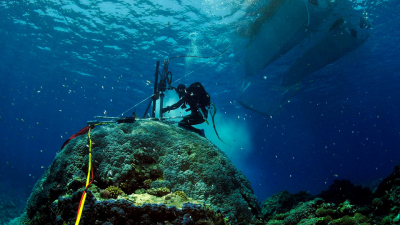Page path:
- Home
- Discover
- Archive News
- News 2018
- Warmer Worlds
Lessons about a future warmer world using data from the past
Original publication: Palaeoclimate constraints on the impact of 2 °C anthropogenic warming and beyond. Nature Geoscience 2018, DOI: 10.1038/s41561-018-0146-0



